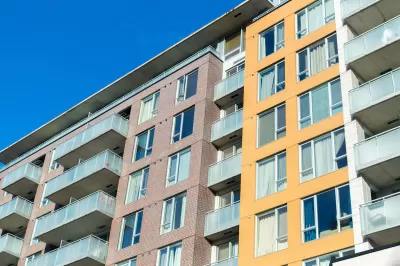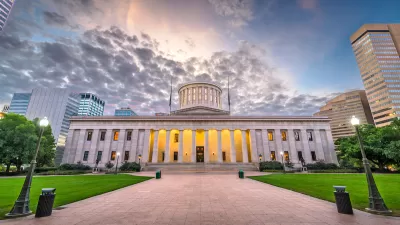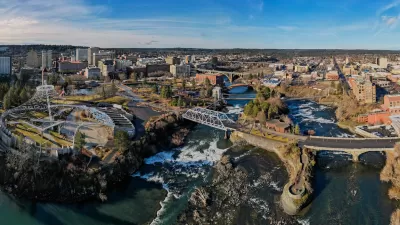Housing advocates say a 2021 bylaw aimed at building more affordable housing units is too lenient, letting developers opt out by paying a fee some consider too low.

In 2021, the city of Montreal passed the Bylaw for a Diverse Metropolis, a regulation aimed at boosting affordable housing production by requiring developers to fund new affordable housing construction, donate land, or pay into a city fund.
So far, reports Roshan Abraham in Vice, every developer has chosen to pay rather than build the housing, resulting in 7,100 new units of market-rate housing. “Every single developer opted to pay a penalty and five donated property rather than build affordable housing, resulting in $16.5 million for city-subsidized housing operated by co-ops or nonprofits—what the city classifies as “social housing”—and $8 million for affordable housing with other subsidies.”
A spokesperson for Front d'action populaire en réaménagement urbain (FRAPRU), a coalition of housing and tenant advocates, said “the problem is not just the lenient design of the 2021 bylaw but the lack of funding for social housing from the Quebec and federal government,” adding that “The group does not believe developers should have had an option to pay a fee instead of producing affordable housing” and that the city’s fee is “far too low,” making it cheaper for developers to simply opt out by paying it.
This matters because Quebec’s population is growing at a rapid clip, and the housing supply isn’t keeping up. “According to a report released by Montreal’s Chamber of Commerce, the city would have to build 23,000 units of housing every year until 2041 for the housing market to level out.”
FULL STORY: This City Made Developers Build Affordable Housing or Pay Up. They All Paid.

Maui's Vacation Rental Debate Turns Ugly
Verbal attacks, misinformation campaigns and fistfights plague a high-stakes debate to convert thousands of vacation rentals into long-term housing.

Planetizen Federal Action Tracker
A weekly monitor of how Trump’s orders and actions are impacting planners and planning in America.

In Urban Planning, AI Prompting Could be the New Design Thinking
Creativity has long been key to great urban design. What if we see AI as our new creative partner?

King County Supportive Housing Program Offers Hope for Unhoused Residents
The county is taking a ‘Housing First’ approach that prioritizes getting people into housing, then offering wraparound supportive services.

Researchers Use AI to Get Clearer Picture of US Housing
Analysts are using artificial intelligence to supercharge their research by allowing them to comb through data faster. Though these AI tools can be error prone, they save time and housing researchers are optimistic about the future.

Making Shared Micromobility More Inclusive
Cities and shared mobility system operators can do more to include people with disabilities in planning and operations, per a new report.
Urban Design for Planners 1: Software Tools
This six-course series explores essential urban design concepts using open source software and equips planners with the tools they need to participate fully in the urban design process.
Planning for Universal Design
Learn the tools for implementing Universal Design in planning regulations.
planning NEXT
Appalachian Highlands Housing Partners
Mpact (founded as Rail~Volution)
City of Camden Redevelopment Agency
City of Astoria
City of Portland
City of Laramie





























